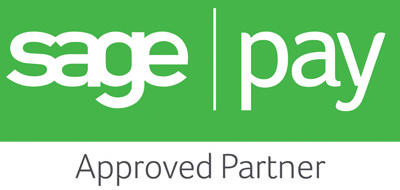When Does a Week Really Begin?
In most countries the week officially begins on a Monday – it's the day after what is considered to be the day of rest and for many places that is a Sunday. If we look at our own society we can see that generally, Monday is the start of the week. The Antiques Roadshow theme music can still evoke the feelings of having to go back to school the next day, while having a case of “the Mondays” is shorthand for the irritability or fatigue one experiences when returning to work after the weekend.
Monday being the start of the week isn't the case for every demographic or every industry, however, because some things run on a different schedule. Office work and academia definitely stick to the standard weekday/weekend split, but the catering and hospitality industry experiences heavier custom over the weekend days. It's more common for a pub to be closed on Monday, than on a Sunday when people want to be in the pub for lunch.
This means that the hospitality trade sees Tuesdays, or even Wednesdays as the start of the week. Other food businesses such as butchers, cafes and farm shops may have the same business hours – being closed or with fewer staff at the beginning of the week than at the end. Within the day there are busy periods over lunch and dinner service, and slower periods through the morning and afternoon, meaning many workers start in late morning but work through to 10pm or later.
Experience days, or sports providers such as kayak and paddle boarding lessons, or hot air balloon flight companies will also have higher demand during the traditional leisure days of Saturday and Sunday, so may close on a Monday through to Wednesday in order to give staff time off in the pattern of a weekend (i.e. two days together).The same applies to side businesses such as weekend-only camp sites on a farm, alpaca trekking or other diversifications that rural businesses take on in order to bolster the income from farming.
The four day working week, which has been trialled successfully at many businesses also shows that the working week can start and finish on any day that suits the workforce. Last June a global trial of the four day week took place with 61 UK companies taking part.58 of those opted to continue the trial and 18 made the change a permanent part of the company culture. Productivity rose and sick days dropped, while staff morale rose and job satisfaction saw the same sort of increase. Each business approached the trial differently with some closing entirely on a Friday and others offering employees the choice of Friday or Monday off to extend their weekend.
Other businesses looked at offering more flexible patterns and hybrid working as part of the four day week and what works for each company depends on the industry and the client demands. Marketers often need to be on call or hybrid working over some weekends if that's when a campaign is kicking off, or because they're managing social media channels. The marketing industry also calls for evening working when there are B2C social medial channels or groups to moderate, so we can see that even within a working day, the start time isn't always in line with the 9am start and the 5pm finish.
Why does this matter? Well, knowing when the working week (and working day) starts and ends in the industry you're looking to sell into informs the timing and tone of your marketing campaigns and activities. It also helps you understand the mindset and the challenges your prospects are faced with which helps you avoid looking out of touch – calling a restaurant kitchen at 1.30 after receiving that PPC lead, wanting to speak to the chef is a great way of ensuring you start off on the wrong foot!
Does your working week or day fit the Monday to Friday 9-5 or is it something else? And what does that pattern look like for your customers?
